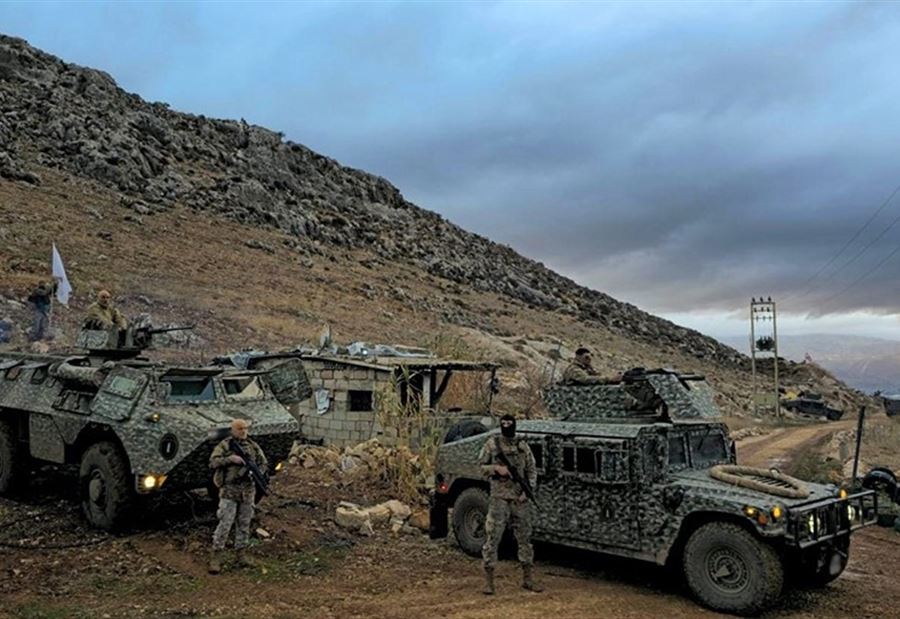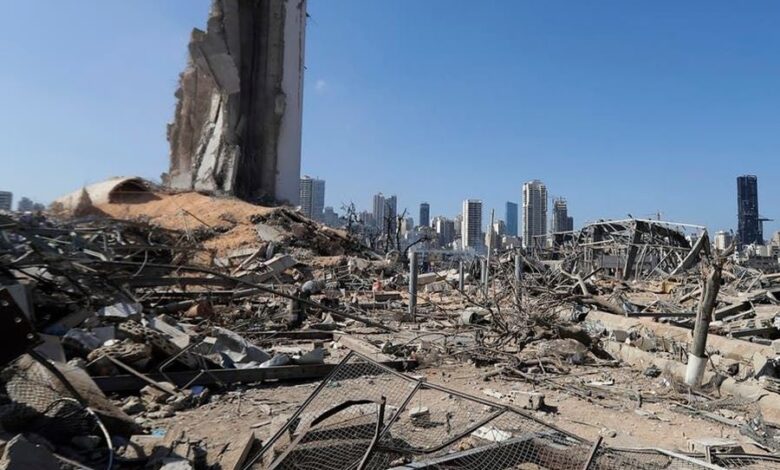الجيش اللبناني يبسط سيطرته: إنهاء وجود “مجموعات الأسد” في مواقع استراتيجية
منذ توقيع اتفاقية القاهرة عام 1969، التي سمحت باستخدام الأراضي اللبنانية للكفاح المسلح الفلسطيني، ظل الوجود العسكري الفلسطيني خارج المخيمات مصدرًا للجدل الداخلي. ومع تراجع النفوذ السوري، الداعم الأساسي لهذه الفصائل، دخلت العلاقة اللبنانية-الفلسطينية مرحلة جديدة تمثلت بسيطرة الجيش اللبناني على مواقع عسكرية بارزة للفصائل الفلسطينية المسلحة في البقاعين الأوسط والغربي وراشيا.
تفاصيل السيطرة العسكرية للجيش اللبناني
بدأ الجيش اللبناني يوم السبت الماضي بعملية نوعية استهدفت ثلاثة مواقع عسكرية فلسطينية، حيث تمت السيطرة على:
- موقع سلطان يعقوب في البقاع الشرقي (تابع للجبهة الشعبية – القيادة العامة).
- موقع حشمش (تابع للجبهة الشعبية – القيادة العامة).
- موقع حلوى في منطقة راشيا (تابع لحركة فتح الانتفاضة).
وفي اليوم التالي، أعلن الجيش تسلم موقع “جبيلي عين البيضاء” التابع للجبهة الشعبية – القيادة العامة في سهل بر إلياس – كفرزبد.
ووفقًا لمصادر عسكرية، نفذت العمليات دون مقاومة تُذكر من العناصر المسلحة. وقام الجيش بتنظيف المواقع، حيث صادر أسلحة فردية ومتوسطة وذخائر متنوعة. أما الصواريخ والألغام القديمة التي شكلت خطرًا، فقد جرى تفجيرها في مناطق قريبة.
تراجع الفصائل المسلحة وتفكك النفوذ السوري
ترتبط المواقع التي تمت السيطرة عليها بفصائل منشقة عن الجبهة الشعبية لتحرير فلسطين، والتي كانت مدعومة بشكل رئيسي من النظام السوري لتعزيز نفوذه في لبنان.
في حديث خاص، أوضح يوسف زريعي، مسؤول الإعلام في حركة فتح بمنطقة صيدا، أن هذه المجموعات لا تمتلك قرارًا فلسطينيًا مستقلًا، بل كانت تعمل بتوجيهات مباشرة من النظام السوري. وأضاف أن تفكيك هذه المواقع بدأ فعليًا منذ العدوان الإسرائيلي الأخير، خاصة مع إخلاء مواقع مثل الناعمة جنوب بيروت، مما يشير إلى نهاية مرحلة طويلة من الوجود المسلح الفلسطيني خارج المخيمات.
موقف حركة فتح والسلطة الفلسطينية
أكدت حركة فتح مرارًا أنها ترفض بشكل قاطع وجود أي سلاح فلسطيني خارج المخيمات، مشيرة إلى أن الأمن على كامل الأراضي اللبنانية يجب أن يكون تحت إدارة الأجهزة الأمنية اللبنانية.
وفي هذا الإطار، أوضح زريعي أن الحركة تدعم تسليم أي سلاح فلسطيني موجود خارج المخيمات، بغض النظر عن الجهة التي تملكه. أما بالنسبة للسلاح داخل المخيمات، فإن الحركة لا تعارض تنظيمه أو تسليمه، بشرط أن يكون ذلك ضمن اتفاقيات واضحة مع الدولة اللبنانية.
وأشار إلى أن الرئيس الفلسطيني محمود عباس، خلال زيارته الأخيرة إلى لبنان، أبدى استعداد السلطة الفلسطينية لتسليم السلاح داخل المخيمات إذا ما تولت الأجهزة الأمنية اللبنانية حماية المخيمات وسكانها.
انعكاسات السيطرة العسكرية على المشهد اللبناني
تأتي سيطرة الجيش اللبناني على هذه المواقع لتعزز سيادة الدولة على أراضيها وتبعث رسائل واضحة في عدة اتجاهات:
- السيادة اللبنانية الكاملة: يؤكد الجيش اللبناني قدرته على ضبط الأمن وإنهاء وجود السلاح غير الشرعي خارج إطار الدولة.
- تراجع الدور السوري: تعكس هذه الخطوة نهاية النفوذ السوري في دعم الفصائل المسلحة داخل لبنان.
- مزيد من الاستقرار الأمني: تمثل هذه العمليات جزءًا من خطة شاملة لضبط الأمن على الأراضي اللبنانية، بما في ذلك داخل المخيمات الفلسطينية.
خاتمة
إن استعادة الجيش اللبناني لهذه المواقع تمثل خطوة تاريخية في إنهاء مرحلة طويلة من الفوضى الأمنية الناتجة عن وجود السلاح الفلسطيني خارج المخيمات. مع استعداد السلطة الفلسطينية للتعاون وتسليم السلاح داخل المخيمات، يبدو أن لبنان يسير نحو مرحلة جديدة من الأمن والاستقرار.
Lebanese Army Takes Control of Key Sites… The Fall of “Assad's Groups” in Lebanon!
On November 3, 1969, the Cairo Agreement was signed, allowing Palestinians to use Lebanese territories for armed struggle. Today, with the fall of the Assad regime—one of the main supporters of this agreement—Palestinian factions have begun to vacate their positions, with the Lebanese Army taking control of four sites belonging to the Popular Front for the Liberation of Palestine – General Command in the central and western Bekaa Valley, as well as in Rashaya.
Details of the Lebanese Army’s Control Operations
On Saturday, the Lebanese Army began a strategic operation targeting three Palestinian military sites, taking control of:
- The Sultan Yaacoub site in the eastern Bekaa (belonging to the Popular Front for the Liberation of Palestine – General Command).
- The Hashmish site (belonging to the Popular Front for the Liberation of Palestine – General Command).
- The Halwa site in Rashaya (belonging to the Fatah Intifada movement).
The following day, the Army announced that it had taken over the “Jebli Ain Al-Bayda” center, which belongs to the Popular Front for the Liberation of Palestine – General Command in the area of Bar Elias – Kfarsverd.
According to military sources, these operations were conducted without significant resistance from the armed groups in these areas. The army proceeded to clear the sites, seizing individual and medium weapons, as well as various ammunition. Old missiles and mines, which could pose a danger during transport, were detonated in nearby areas.
The Retreat of Armed Factions and the Decline of Syrian Influence
The sites that were taken over by the Lebanese Army were previously controlled by factions that had broken away from the Popular Front for the Liberation of Palestine and were primarily supported by the Syrian regime to strengthen its influence in Lebanon.
In a special interview, Youssef Zreih, the media official for Fatah in Sidon, explained that these groups did not have an independent Palestinian decision but were directly supported by the Syrian regime. He added that the evacuation of these military sites began during the latest Israeli aggression, particularly starting with the Naameh area south of Beirut, signaling the beginning of the dismantling of armed Palestinian presence outside the camps.
Fatah’s Position and the Palestinian Authority's Stance
Fatah has repeatedly emphasized its rejection of any Palestinian weapons outside the camps, stressing that security over all Lebanese territory should be under the control of Lebanese security agencies.
In this context, Zreih stated that Fatah supports the surrender of any Palestinian weapons outside the camps, regardless of who holds them. As for weapons inside the camps, Fatah does not oppose their regulation or surrender, provided there is an agreement with the Lebanese state.
He also revealed that President Mahmoud Abbas, during his recent visit to Lebanon, expressed the Palestinian Authority’s readiness to surrender weapons inside the camps, provided Lebanese security forces take responsibility for protecting the Palestinian people within them.
Impact of the Military Control on the Lebanese Scene
The Lebanese Army’s control of these sites represents a significant step toward reaffirming Lebanon's sovereignty over its territory and sends clear messages in several directions:
- Full Lebanese Sovereignty: The Lebanese Army has proven its ability to restore security and end the presence of illegal weapons outside the state's framework.
- Decline of Syrian Influence: This move signifies the end of Syrian-backed factions operating within Lebanon.
- Greater Security Stability: These operations are part of a broader plan to restore stability, including within Palestinian camps.
Conclusion
The Lebanese Army’s capture of these sites marks the end of an era of security instability caused by the presence of Palestinian weapons outside the camps. With the Palestinian Authority willing to cooperate and surrender weapons inside the camps, it seems Lebanon is moving toward a new era of security and stability.
Translated by international scopes team
المصدر: ليبانون ديبايت
 International Scopes – سكوبات عالمية إجعل موقعنا خيارك ومصدرك الأنسب للأخبار المحلية والعربية والعالمية على أنواعها بالإضافة الى نشر مجموعة لا بأس بها من الوظائف الشاغرة في لبنان والشرق الأوسط والعالم
International Scopes – سكوبات عالمية إجعل موقعنا خيارك ومصدرك الأنسب للأخبار المحلية والعربية والعالمية على أنواعها بالإضافة الى نشر مجموعة لا بأس بها من الوظائف الشاغرة في لبنان والشرق الأوسط والعالم




